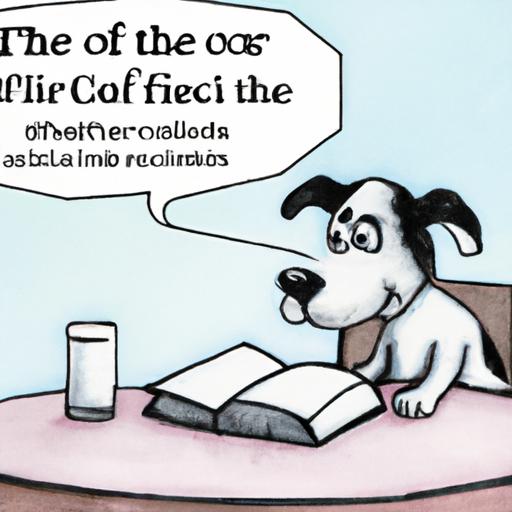As caregivers, we often find ourselves sharing our food and drink with our canine companions. But did you know that some of these seemingly harmless treats can actually cause harm to your pet? One such culprit is milk. Yes, that’s right. Despite the popular image of cats lapping up bowls of milk, dairy products can be problematic for both felines and our faithful friends, dogs.
Table of Contents
– Understanding Lactose Intolerance in Dogs
– Effects of Milk on Dogs
– Alternatives to Milk for Dogs
– Frequently Asked Questions
Key Takeaways
– Dogs, like many humans, can be lactose intolerant.
– Milk and other dairy products can cause digestive issues in dogs.
– There are safe and nutritious alternatives to milk for dogs.
Understanding Lactose Intolerance in Dogs
Just as in humans, lactose intolerance is prevalent in dogs. This condition is due to a deficiency in the enzyme lactase, which is responsible for breaking down lactose – the sugar found in milk. Without sufficient lactase, consuming milk can lead to a variety of digestive issues.
On OneTopDog, you can find more information on various dietary needs and concerns for dogs.
Effects of Milk on Dogs
When a dog that is lactose intolerant consumes milk, it can cause several adverse effects such as:
-
Diarrhea:
The undigested lactose in the intestines can lead to loose, watery stools. -
Gas and Bloating:
As the lactose ferments in the intestines, it produces gas, which can cause your dog to feel bloated and uncomfortable. -
Vomiting:
In some cases, the ingestion of dairy can trigger vomiting in dogs. -
Itching and Irritation:
Some dogs may also exhibit symptoms such as itching or skin irritation due to an allergic reaction to the proteins present in milk.
However, it’s important to understand that not all dogs are lactose intolerant, and some can tolerate small amounts of milk. But since we can’t test for lactose intolerance in dogs, it’s generally best to avoid giving them milk to prevent any potential discomfort.
Alternatives to Milk for Dogs
Fortunately, there are various alternatives to milk that you can offer your pet. These include dog-specific milk replacements, which are specially designed to be easily digestible for dogs. You can also consider canine-friendly fruits and vegetables, like apples and carrots, as healthy treats.
For a detailed list of safe and healthy treats for dogs, you can check out this guide on OneTopDog.
Frequently Asked Questions
1. Are all dogs lactose intolerant?
No, not all dogs are lactose intolerant. However, since there’s no way to test for lactose intolerance in dogs, it’s best to avoid giving them milk.
2. Can puppies drink milk?
Puppies are able to digest their mother’s milk due to higher levels of lactase. However, as they grow older and are weaned off, they produce less lactase and may become lactose intolerant.
3. Are there any dairy products that are safe for dogs?
Some dogs can tolerate small amounts of plain, unsweetened yogurt or cheese. These foods are lower in lactose compared to milk. However, it’s still best to consult your vet before introducing any new food into your dog’s diet.
To conclude, while milk isn’t toxic to dogs, it can cause discomfort and digestive issues, particularly in lactose-intolerant dogs. It’s best to provide them with safe alternatives, ensuring they enjoy a balanced diet that’s suitable for their digestive needs. For more tips on feeding your dog, visit OneTopDog.



